Labs and Resources
Here, students will apply advanced spectroscopy, chemical fractionation and computed analyses to extend organic synthesis work that is part of their two-semester series in organic chemistry. They will also be able to analyze compounds elicited from screens for novel antibiotics in collaborating courses. This lab is located in the Zollner Engineering Center Room Z212.
Located in the Zollner Engineering Center Room Z014, students will learn anatomy with an array of hands-on contemporary teaching tools, including cadavers. Students will also use this lab for developing and validating medical device designs and for the creation of their senior capstone projects.
Snyder Academic Center Rooms 169 and 175 connect to create a rare set of laboratory spaces designed intentionally for student success through active learning. These Technology-Enabled Active Learning Laboratory (TEALL) spaces surpass modern education by placing students into grouped engagement and hands-on work. Whether in lecture or lab, students immerse themselves into future careers, surrounded by equipment and models, computers and artifacts.
Located in the Zollner Engineering Center Room Z249, this is a versatile and well-equipped lab space designed to support a wide range of biology courses, from introductory to advanced levels. It serves as a dynamic learning environment where students can engage in hands-on experiments, collaborative projects and innovative research activities.
Located in the Zollner Engineering Center Room Z254, this lab is used for student education and student-faculty research. Students have the opportunity to learn exercise physiology procedures and assessments, including anthropometric measurements, blood pressure, body composition, cardiorespiratory fitness, flexibility assessment, metabolic rate, power assessment and strength assessment.
Lode Valiant II XL Sport Treadmill
This treadmill is specifically designed for sports medical applications and had a larger running surface in order to provide more space when running at high speeds.
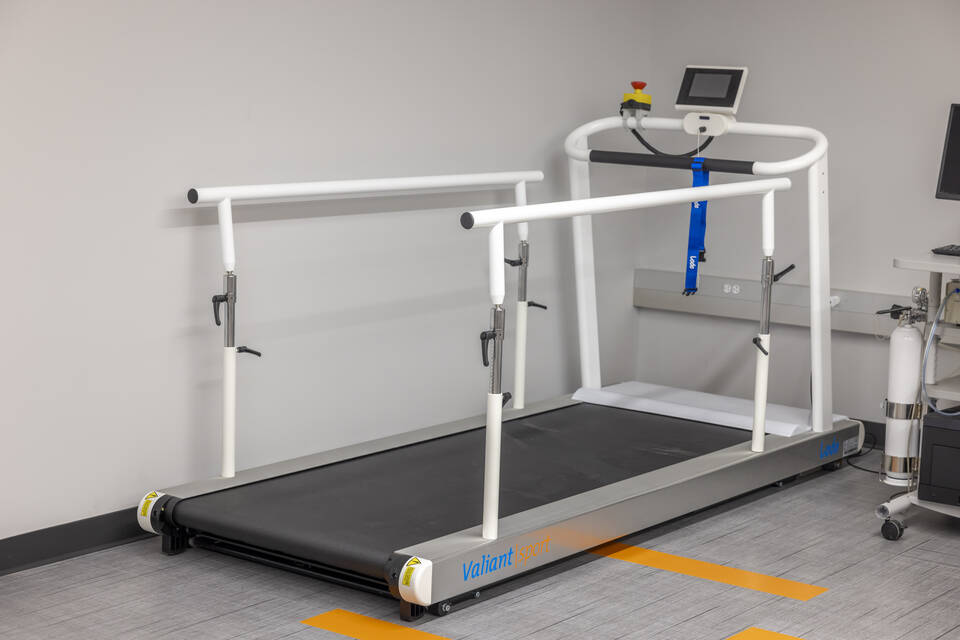
Vertec Jump Trainer
This tool is used to determine standing reach or vertical leap reach from 6′ to 12′ in half-inch increments.
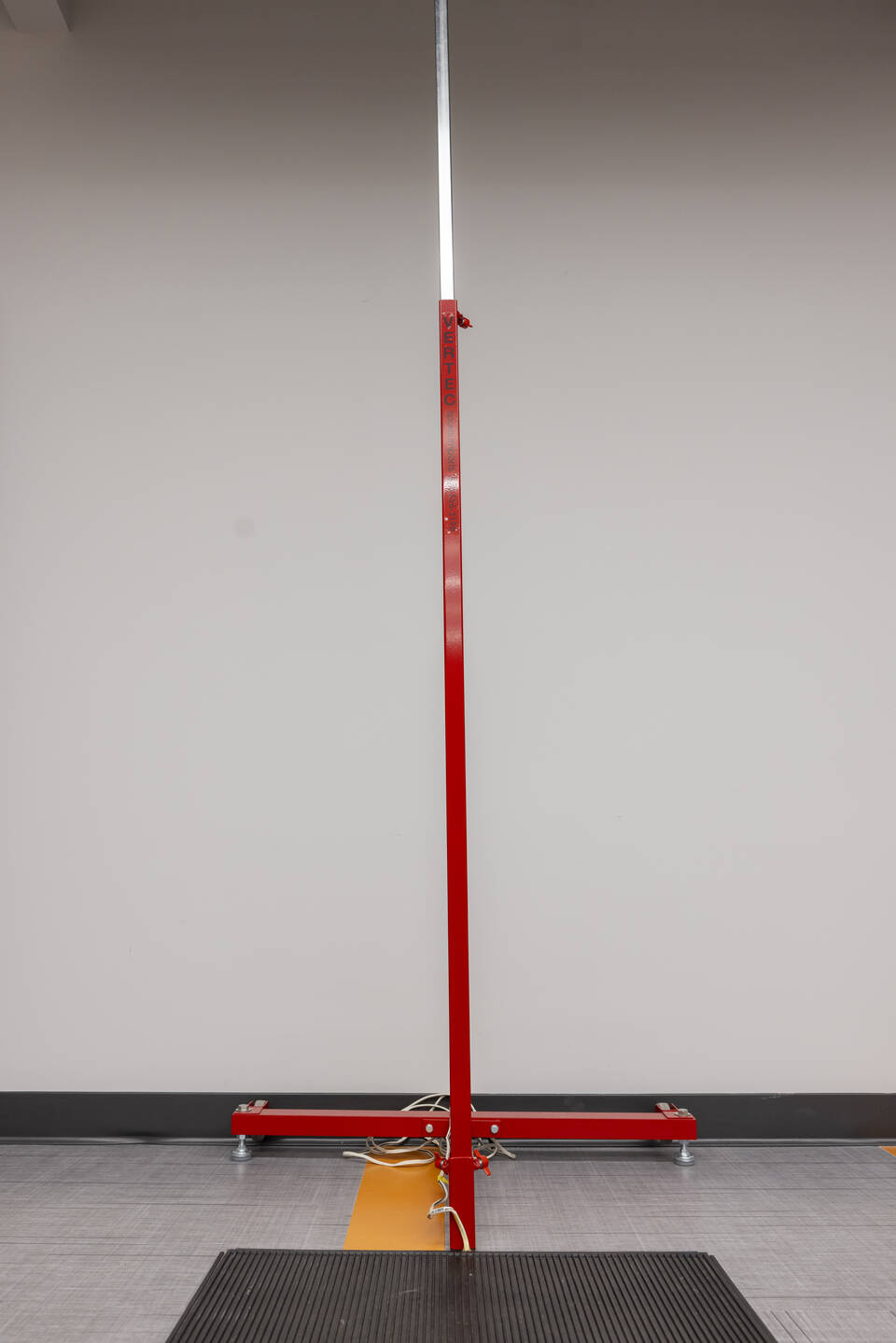
Excalibur Sport 3000-Watt Ergometric Bike
The bike is designed for heavy duty sports medicine ergometry and has been considered the gold standard in ergometry since 1985. It will allow for testing of all types of athletes and may be adjusted to fit a wide size range of individuals. This will expand the ability to assess individuals from younger to older populations, as well as sedentary to competitive athletes.
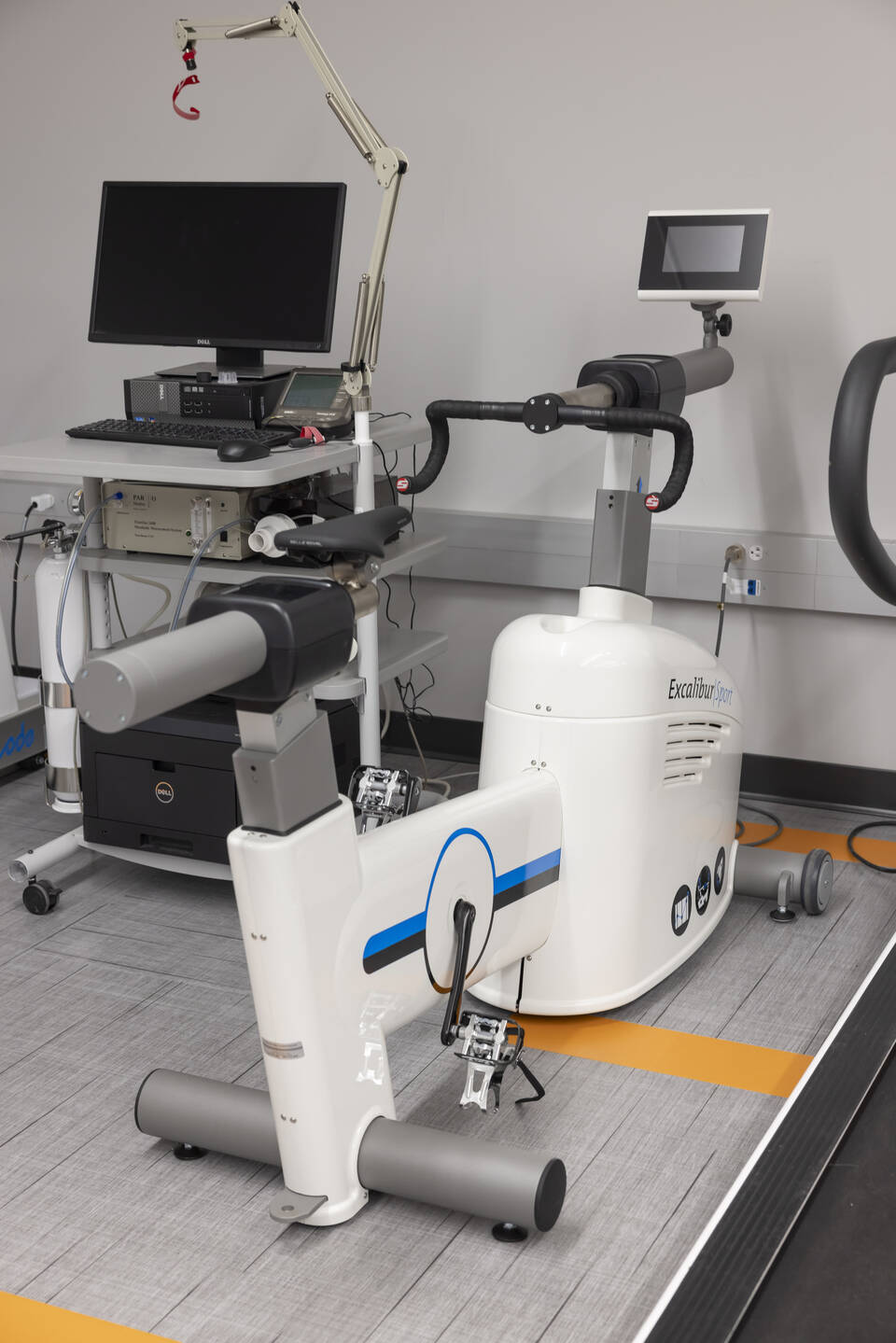
Shiller EKC Monitoring System
This machine is used to monitor heart rhythms at rest and during exercise.
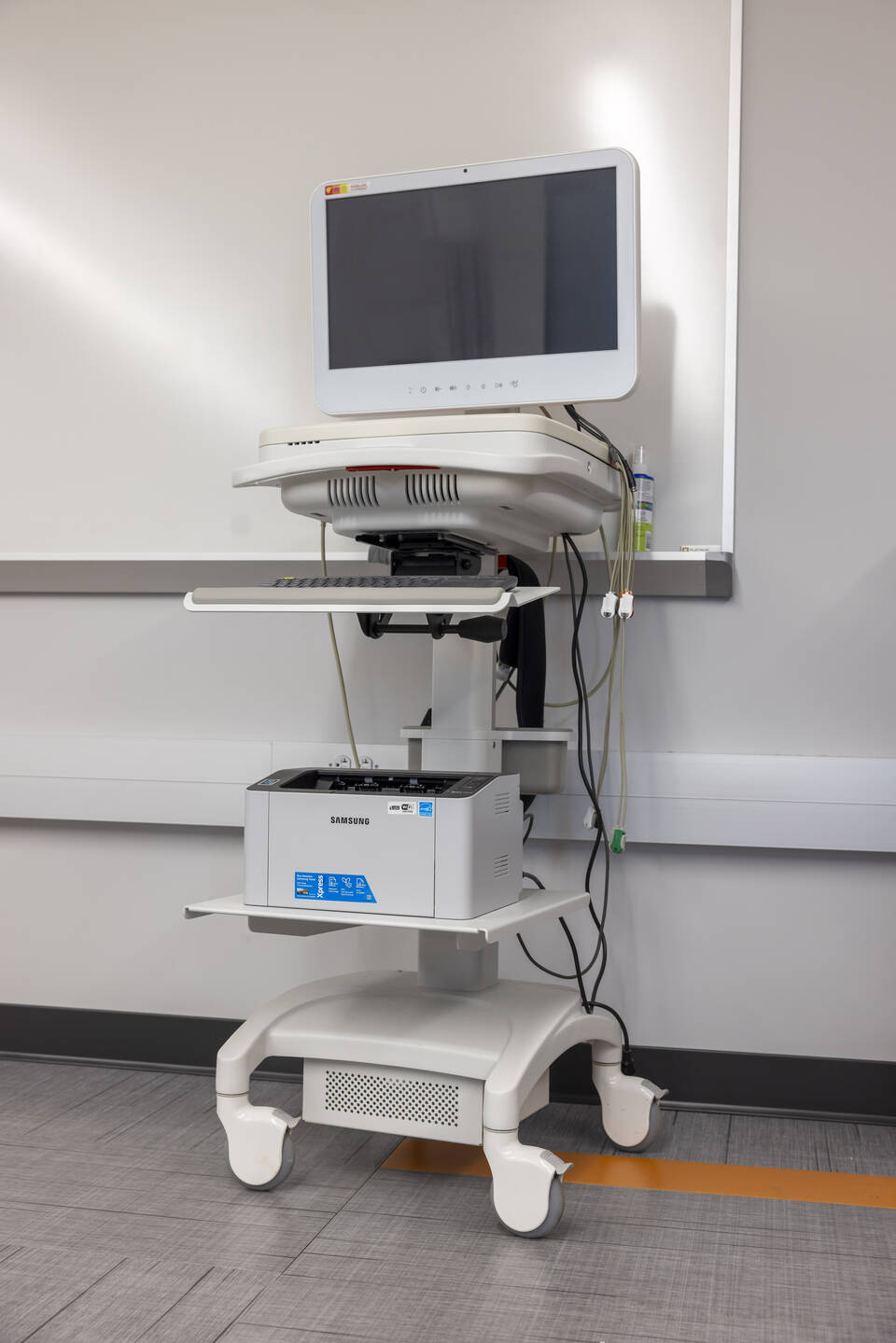
Aerobic Step Platforms
These platforms may be adjusted for various heights and used for a variety of fitness testing and training.
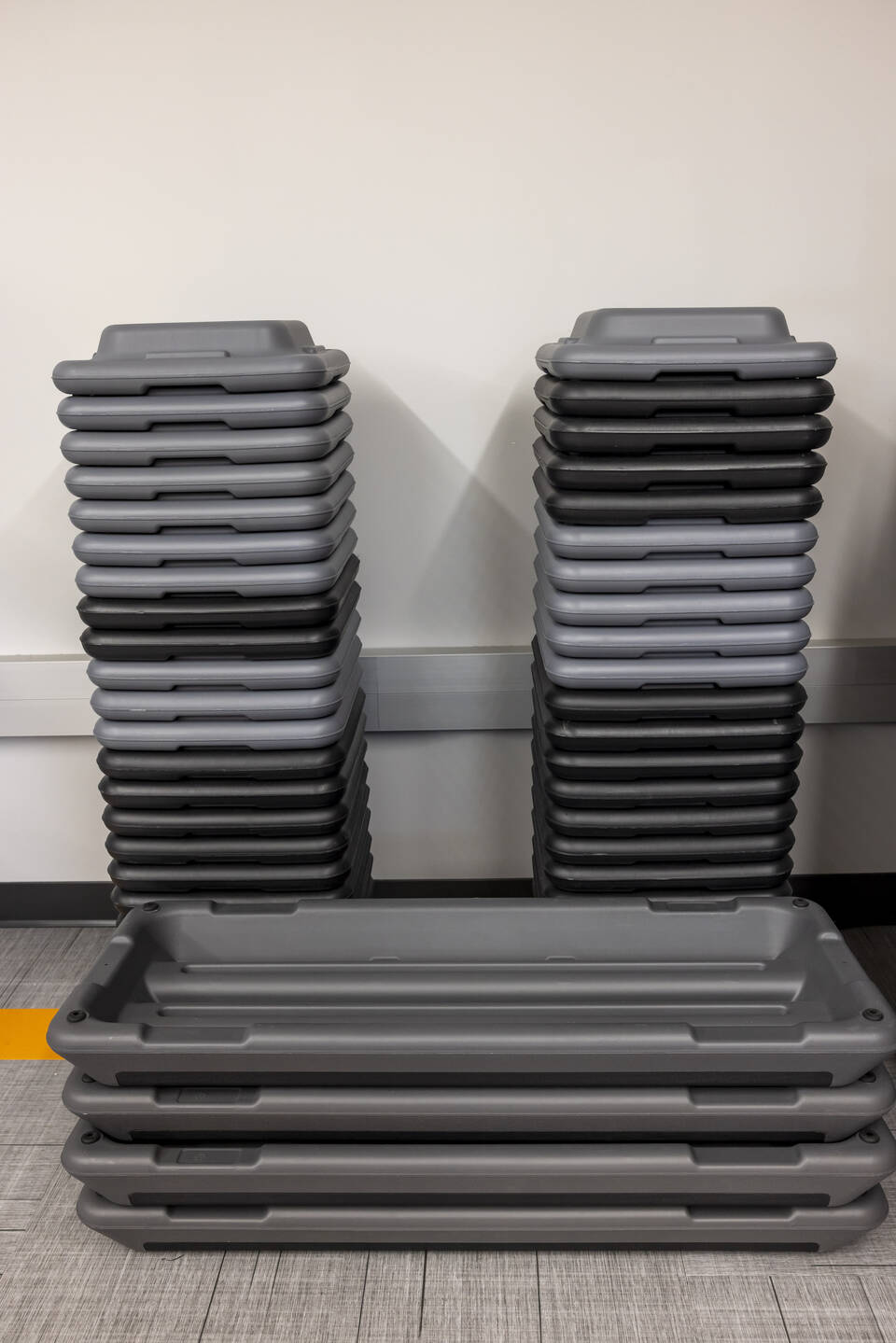
Lode Corival CPET Ergometer
This machine is one of the most popular ergometers worldwide. It can be easily controlled by all known stress ECG and pulmonary devices in the world.
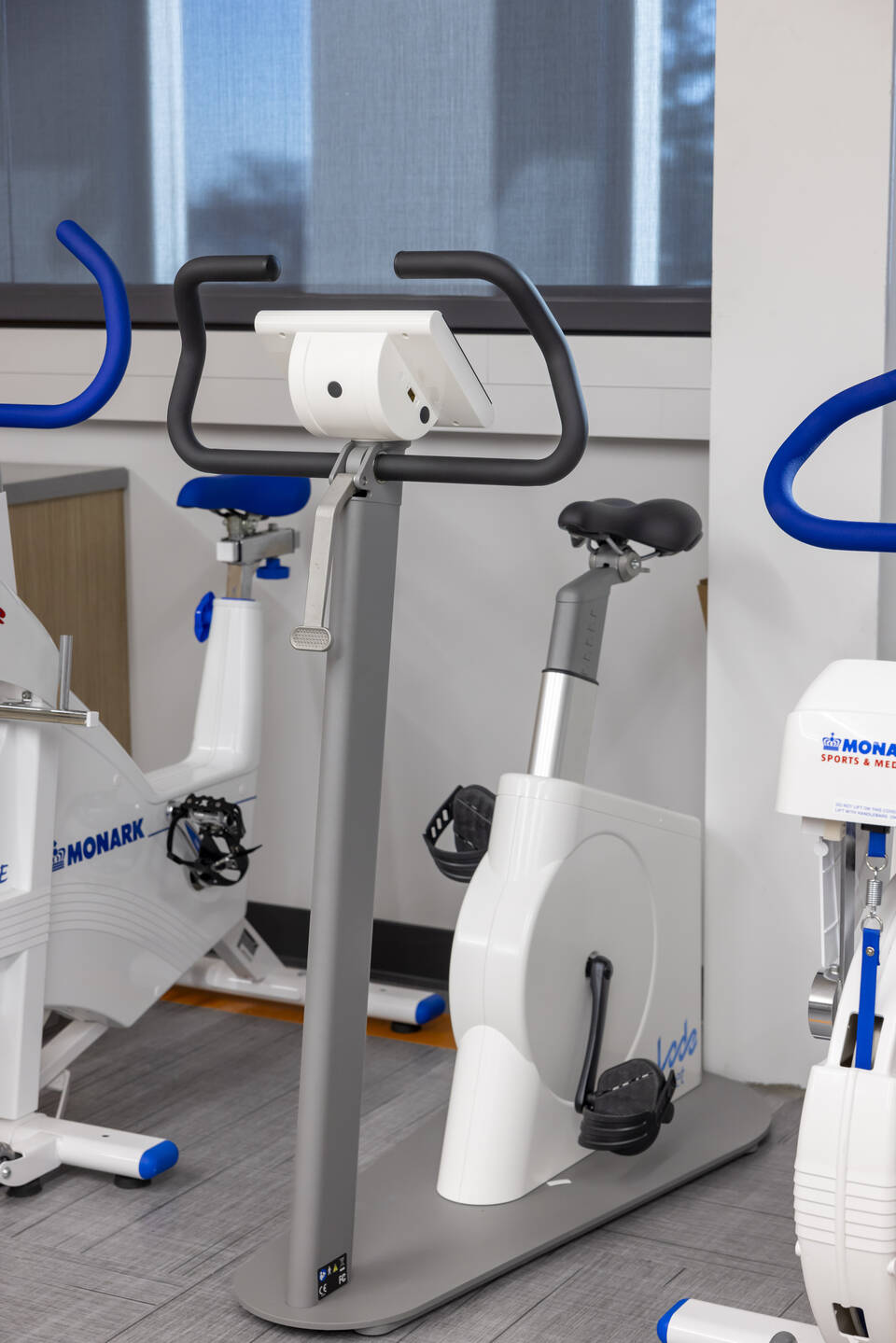
Monark Ergometer 894 E
This machine is the golden standard for Wingate and anaerobic tests. The unique weight basket enables instant loading and the calibrated weights vouch for unmatched accuracy, repeatability and reliability. The weight basket can be controlled manually or automatically with the Monark Anaerobic Test Software, which also enables multiple different test analysis tools.
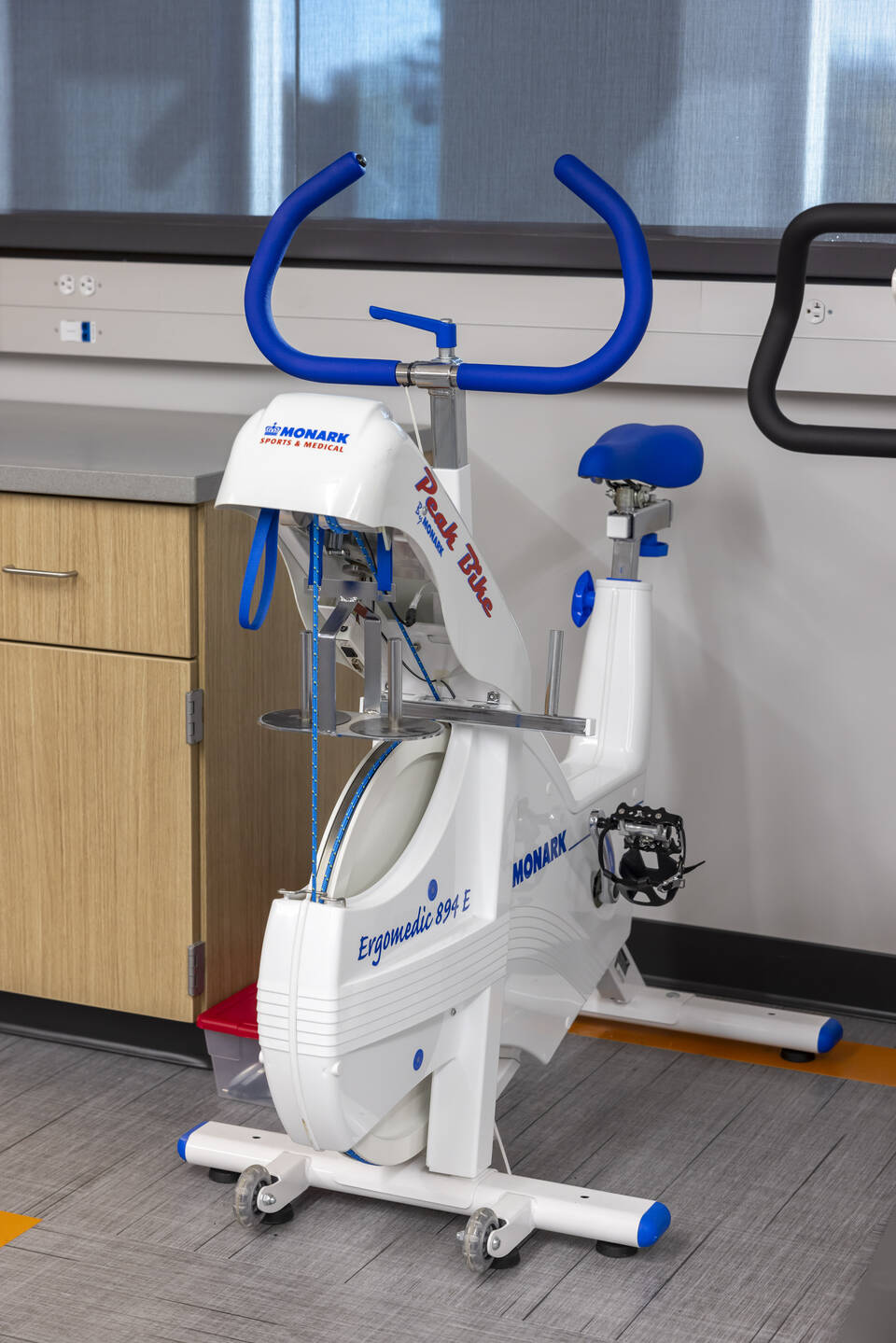
Monark Ergometer 828 E
This is the world’s most widely used test bike for fitness tests and work tests.
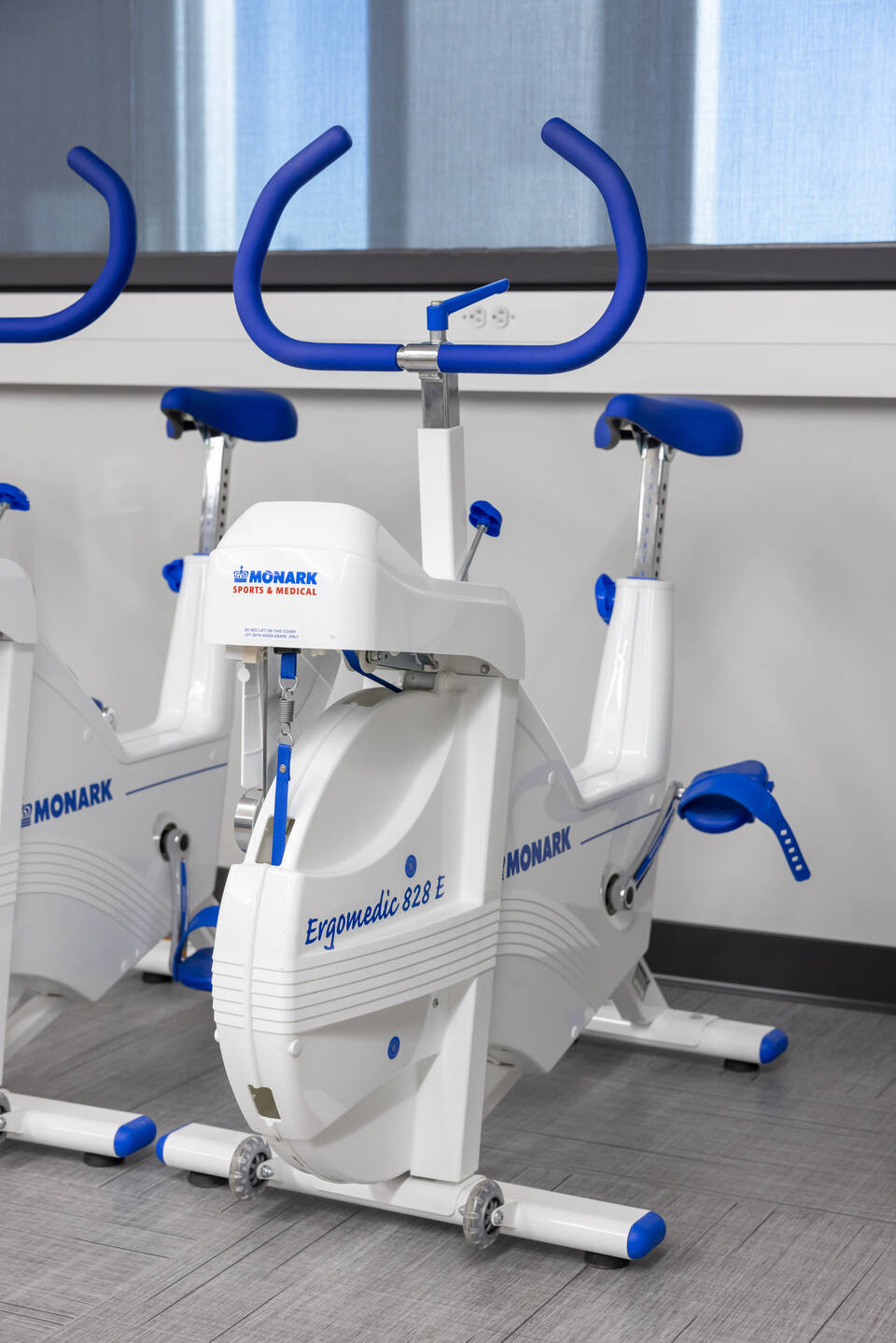
BOD POD
The BOD POD is the world’s only Air Displacement Plethysmography (ADP) system using whole body densitometric principles to determine body composition (fat and fat-free mass) in adults and children. The BOD POD is ideal for assessing the body composition of special populations such as elderly persons, people with disabilities, subjects weighing up to 551 pounds and young children from 2 to 6 years of age.
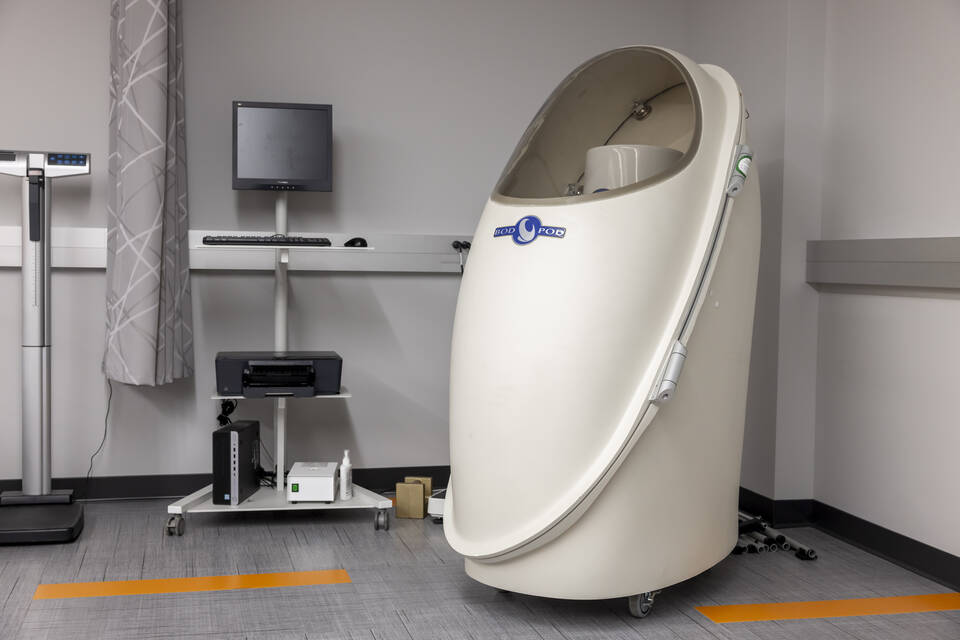
Scale/Stadiometer
A tool used to determine weight and height.
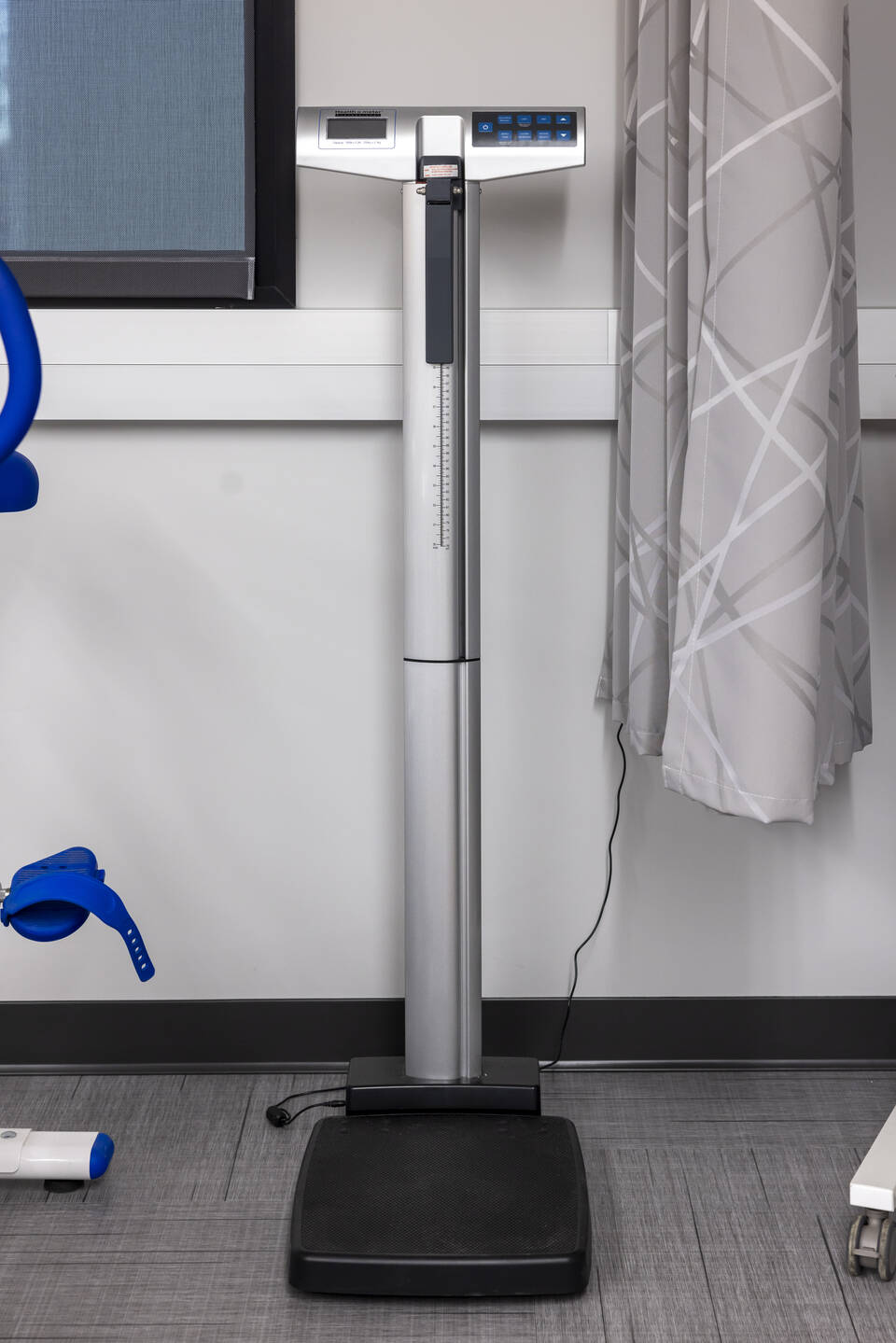
Stadiometer
A tool used to determine height.
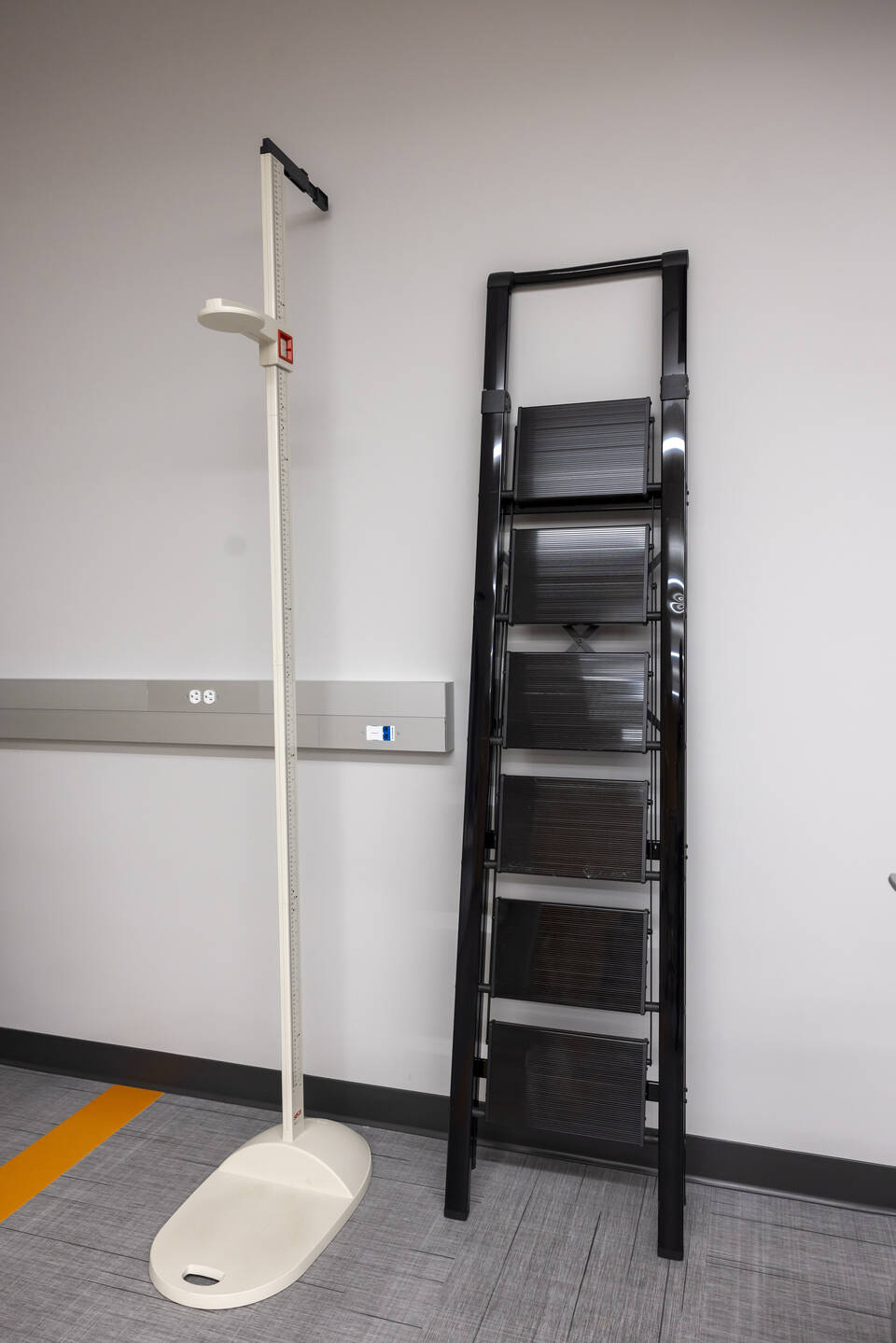
Pavo Medics TrueOne 2400
This is a compact, integrated metabolic measurement system for cardiopulmonary stress testing, indirect calorimetry and maximal O2 consumption measurement.
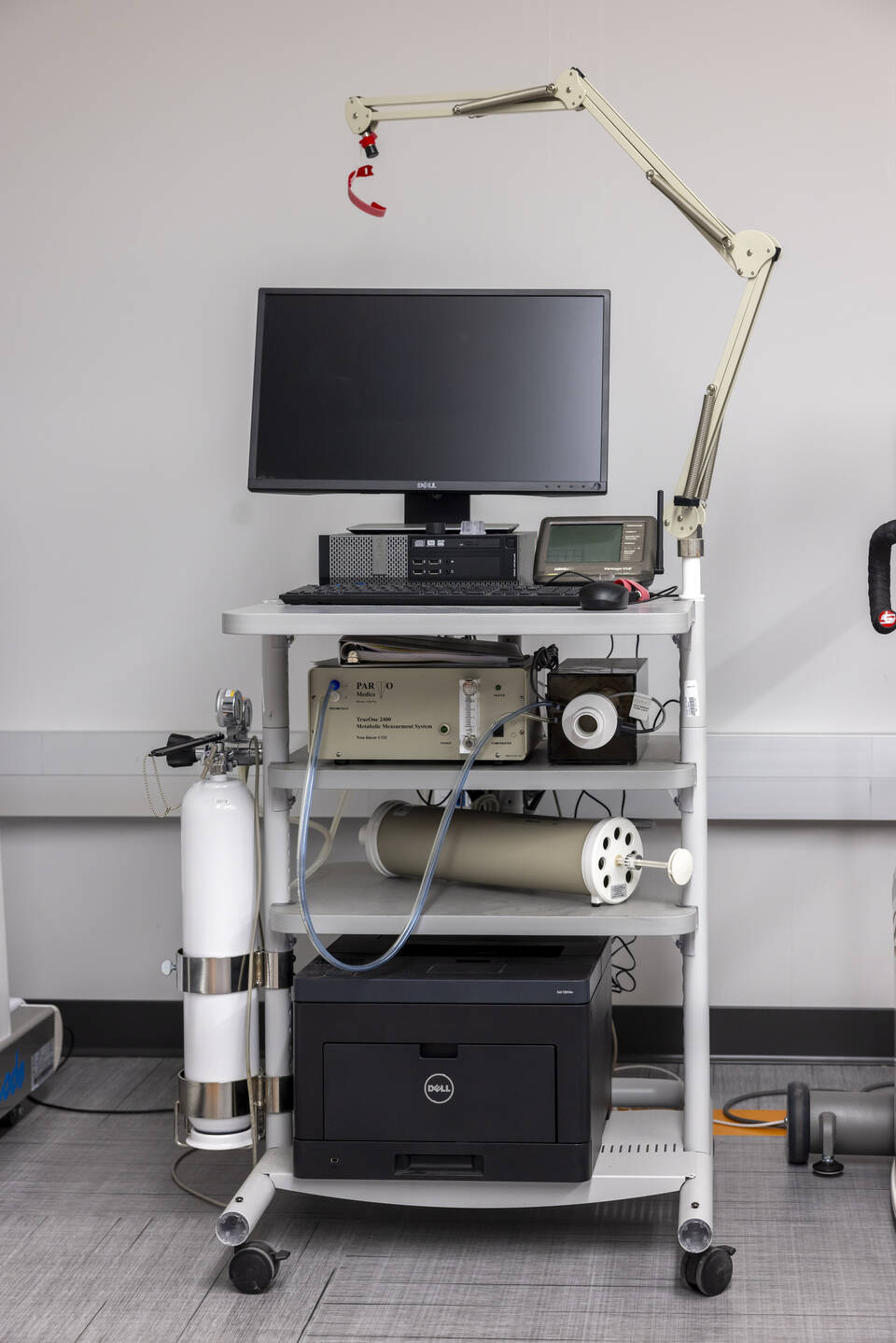
Trackmaster TMX428CP Treadmill
This heavy-duty, medical treadmill is specifically designed to be interfaced with and controlled by a wide variety of cardiac and pulmonary stress testing systems.

In this lab, located in the Keene Building Room K253, students learn with the same up-to-date technology and tools that forensic data analysts are using the contemporary laboratories around the world. It introduces students to molecular biology DNA laboratory techniques used in the study, detection and manipulation of genetic material in science and technology. Those techniques include detecting cancer-causing mutations, identifying pathogens and forensic DNA analysis.
Genetic Analyzer
Following multiplex polymerase chain reaction (PCR), samples are analyzed by capillary electrophoresis in the genetic analyzer and the results of this analysis (DNA profiles) are presented in the form of an electropherogram.
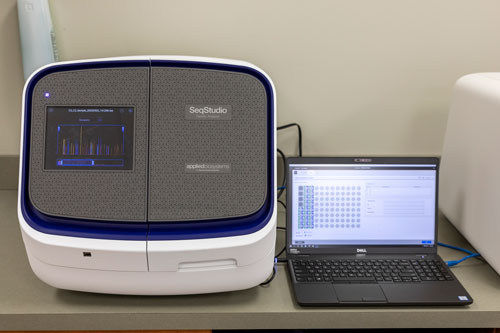
Polymerase Chain Reaction (PCR) Thermal Cycler
Once DNA concentration is determined, amplification (making copies) of a forensically relevant DNA loci (markers) is performed using the PCR thermal cycler and multiplex PCR reagents.
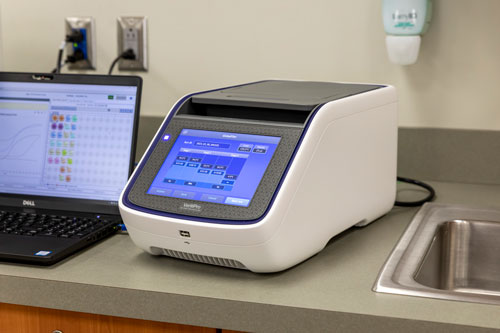
Real-Time Polymerase Chain Reaction (PCR) Thermal Cycler
Following DNA extraction and purification, DNA concentration is measured using a real-time PCR thermal cycler and reagents designed specifically for forensic applications.
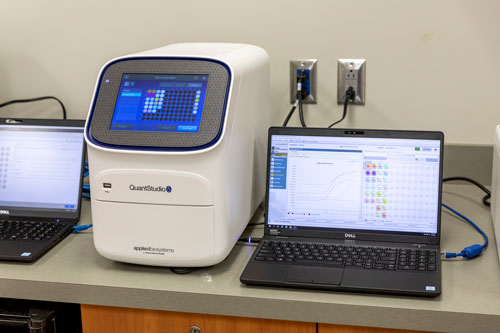
Polymerase Chain Reaction (PCR) Hood/Workstation
Each PCR hood/workstation has a mini-centrifuge, vortex and micro-pipettors that allow handling of reagents with high accuracy and precision. DNA extraction and purification from forensic samples take place at these PCR workstations. Using reagents developed specifically for the DNA extraction and purification, high quality DNA samples are obtained.
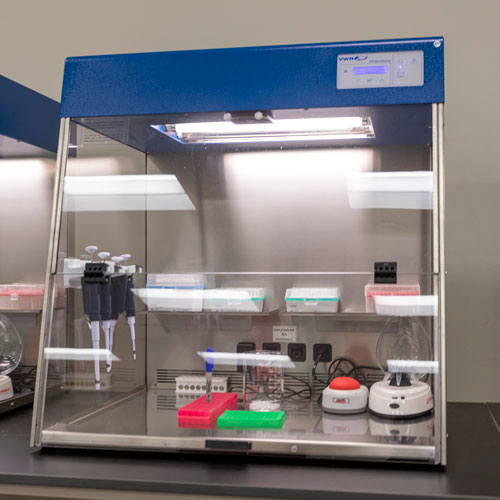
Students working in this advanced lab will be prepared for careers in life sciences by using state of the art instrumentation necessary for immunological assays, genotyping and cellular fractionation.
In this general chemistry lab, students perform various hands-on experiments, including taking measurements with Vernier probes, to help reinforce what they learn in in a variety of chemistry courses. Located in the Zollner Engineering Center Room Z214.
Located in the Zollner Engineering Center Room Z130, this space helps students reinforce what they learn in in a variety of life sciences courses, including Human Health and Disease, Human Genetics and General Anatomy and Physiology courses. These experiences help our students prepare for diverse careers in health care fields.
Located in the Zollner Engineering Center Room Z252, this is a specialized facility designed for the study of microorganisms, including bacteria, fungi, viruses and protozoa. These labs are equipped with advanced tools and equipment to safely handle and analyze these organisms, ensuring a sterile environment to prevent contamination and the spread of infectious agents.
Located in the Zollner Engineering Center Room Z152, students perform various experiments and test physical principles that help reinforce what they learn in in a variety of physics courses. They will explore the fundamental aspects of mechanics including kinematics, Newton’s Laws, work and energy, rotational motion, simple harmonic motion and wave motion, as well as electromagnetic concepts.
Located in the Cunningham Business Center Room 205, this studio features a control room, multiple cameras and sources (overhead podium camera, laptop screens and DVD/Blu Ray). There is a green screen that allows producers to digitally input still or video images into the background. The studio can be used to conduct interviews, live broadcasts, television programs and class videos.
This computer lab is used for student education related to Adobe Creative Suite programs, which include Photoshop, Premiere, Animate, After Effects, Illustrator and InDesign. Students have 24/7 access to this lab, located in Snyder Academic Center Room S210.
Located in the McMillen Library, the Writing Center is a place where undergraduate and graduate students on our Fort Wayne campus can get free support and feedback on writing and presentation assignments. Adult and online students can get free writing assistance from Tutor.com.
